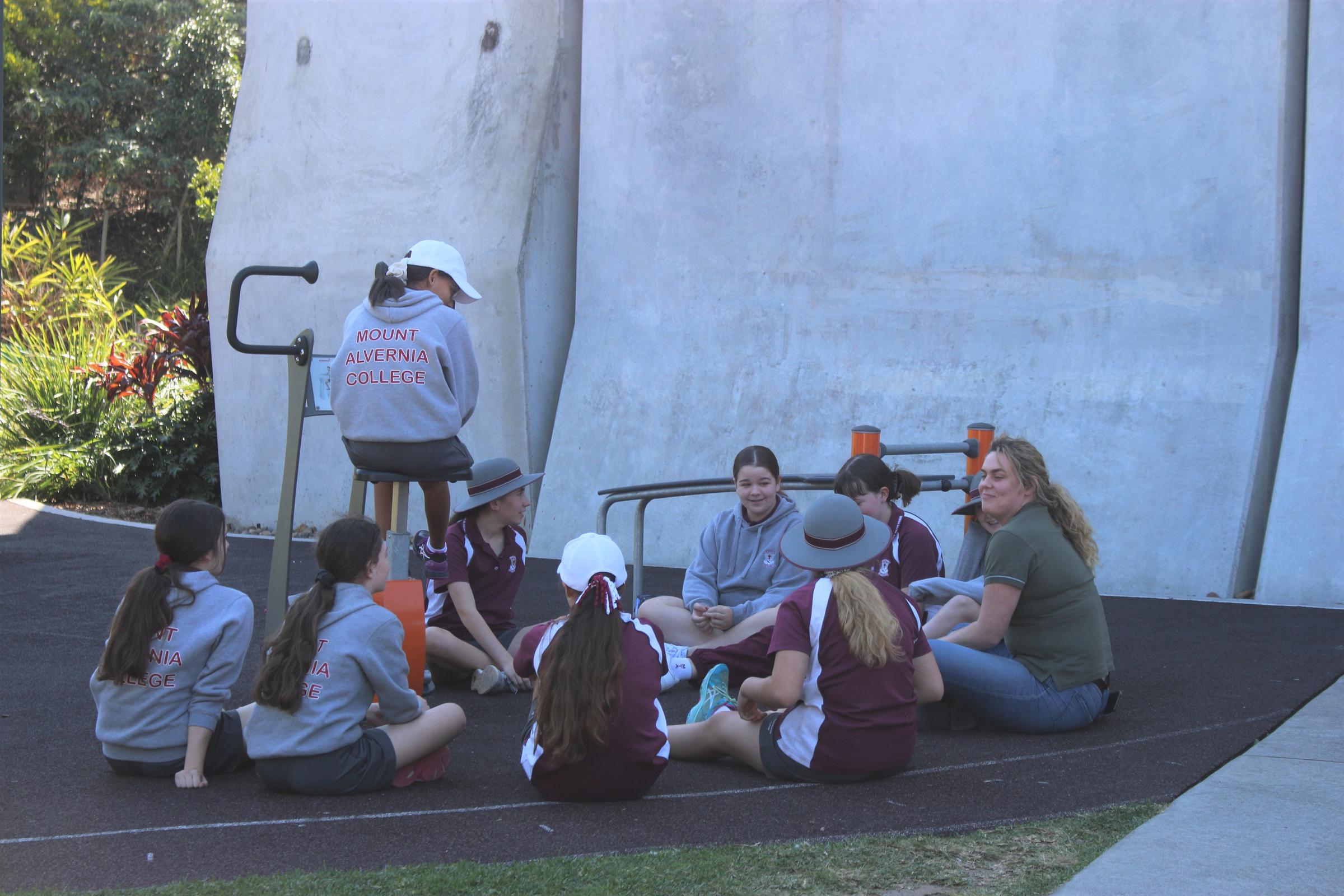Year 8 Pastoral Guardian

"He who chases two rabbits at once will catch none."
This German proverb resonated with me after canvassing Year 8 students recently about what they deemed to be their greatest challenge at present. While some students identified difficulty in managing time, when asked to delve deeper about why this issue occurs, many students identified distractibility as the major cause for feeling overwhelmed over their completion of work/assignments (aka ‘melt-downs’), disappointing standards of work/results, sleeplessness, and low mood. Distractibility is not unique to Mount Alvernia Year 8s, but symptomatic of many students across Australia, and especially so in our COVID climate.
Students of today learn very differently to the way we did. Electronic devices are integral to their learning; yet they, and the myriad apps, programs, YouTube clips, TikTok, games, chat rooms, and social media platforms are often the cause for distractibility within students. Now I am not demonising computers; however, research shows that a student’s ability to concentrate and shut out distractions is a strong predictor of success in life - not only for their academic success now, but for their overall success in life.
Executive functioning – memory, flexible thinking, and self-control - is controlled by the pre-frontal cortex. According to psychologist Daniel Goleman, “The circuitry for paying attention is identical to the circuits for managing distressing emotion” (cited in Schwartz 2013). To this end, the more the brain is exercised through focussed attention, the better the outcome. In any field, sustained focus and discipline overrides talent.
So what about the claim that some students – and adults – are proficient in multitasking? Goleman asserts that multitasking is a myth. When people say they are multitasking, they are in fact engaged in “continuous partial attention”, a situation that involves the brain switching back and forth between tasks. Consequently, potential success in both outcomes is eroded.
Distractibility is incredibly frustrating for all stakeholders – especially so for students themselves. Deep down, students yearn to be successful. To this end, learning the skills for how to focus, supported by good work and study routines, is critical, so that end-of-term melt-downs can be minimised, and greater satisfaction can be achieved. Here are some strategies that parents and carers can share (and model) to children, to promote greater focus and to minimise distractions:
- Be understanding. Supportive language like, “I hear you are sounding frustrated about this assignment. How can I help you to make progress?”, or, “You have a lot of assessment coming up in the next few weeks. How can I support you?”
- Be calm, firm in your expectations about your child completing the set work to the best of her ability, and non-controlling. Avoid yelling, for it further contributes to distractibility.
- Plan for success. Using the Assessment Calendar, ask your child to map out the term’s assessment on the Mount Alvernia Study Planner. Pin this planner near your child’s workspace.
- Create routines and spaces for work at home. Place a timetable/study routine on the kitchen fridge so all family members can support the positive work practices: set homework/study times; working at the dining room table; additional electronic devices (phone) in another room; monitor screens for distractions.
- Chunk tasks. Break assignments and homework down to manageable tasks, eg twenty-minute work slot; take a five-minute walk in the backyard/have a drink. On the day an assignment is given, draw up plan for completing aspects of the task each night.
- Create checklists. Ticking off tasks is a great motivator and builds self-efficacy.
- Regularly back up work to avoid loss of work.
- If your child is struggling to complete work, ask her to show you the learning that has taken place in class – Teams, Moodle, Stile, etc. Referring to these resources may prompt their memory of the lesson, and the skills learned.
- Build in rewards for improved focus and attention. While better results are the ultimate reward, some ‘carrots along the way’ help support motivation and purpose.
- Email your child’s teachers for support and clarification of details. This is particularly important when your child has ‘shut down’ or can’t see the wood for the trees.
- Ensure sufficient hydration (water) and a nutritious and balanced diet.
- Help with all of the above, but avoid doing the work for your child, or feeding negative thoughts and talk. “I believe in you” is affirming and empowering.
On a completely different note, a reminder that Year 8 Camp permissions and medical and dietary details need to be completed by 9 September. Please use the following link to complete this task: www.adventurealternatives.com.au/mta8. Thank you to the many parents/carers who filled out the essential documents so quickly!
Conversation Starters
- In what ways are you distracted from performing at your best?
- How can I help you to minimise these distractions?
- How can I help you to improve your focus and work practices?
- What work practices or strategies do your friends use to build their success?
Best wishes as your and your daughters approach the end of the term. Stay safe and enjoy the upcoming holidays.
Jeni Barlow
References:
https://www.scientificamerican.com/article/where-theres-a-will/

